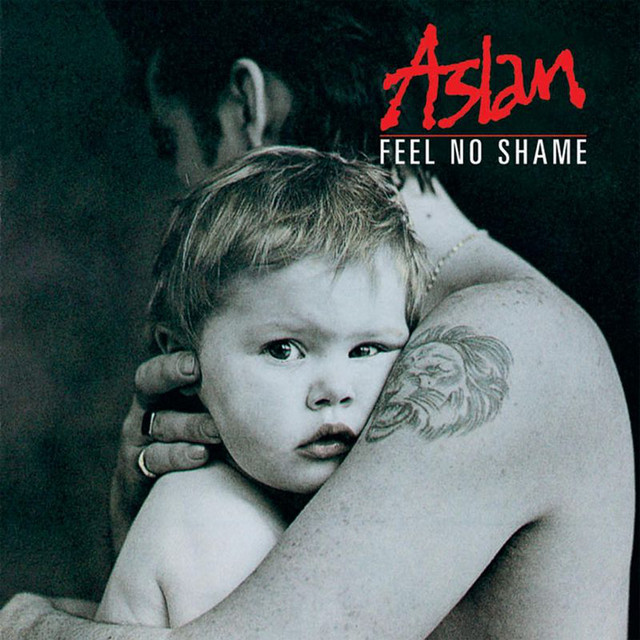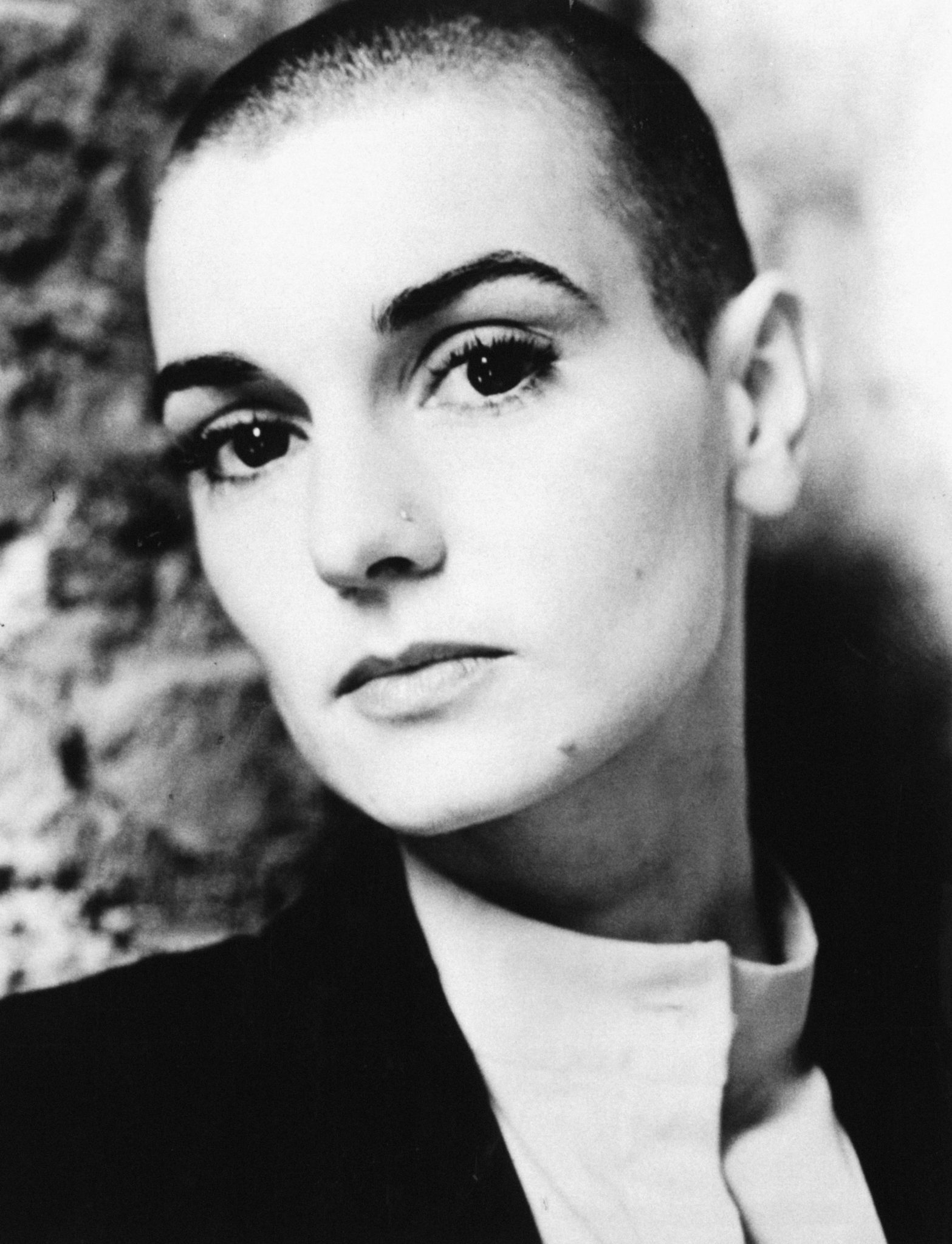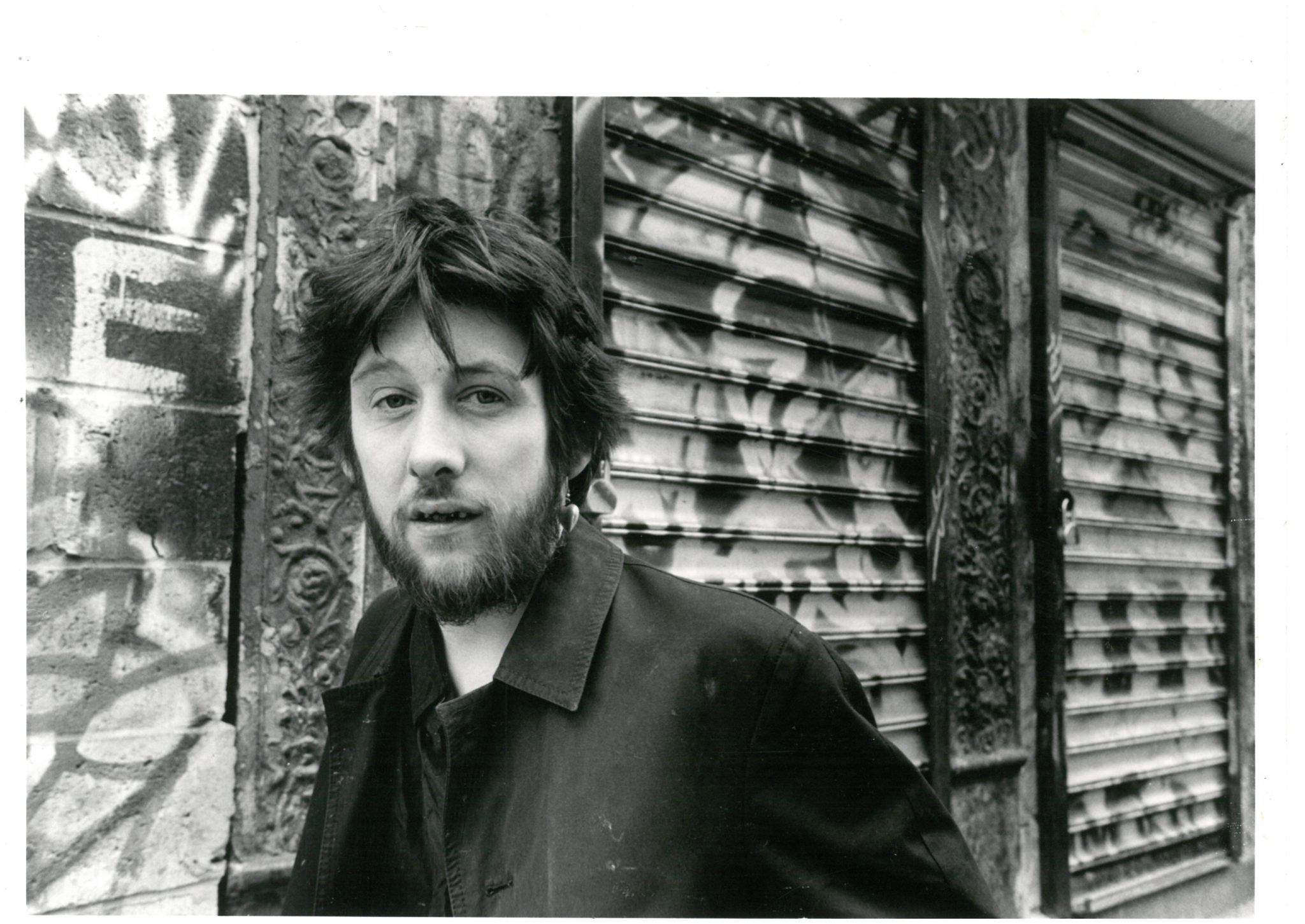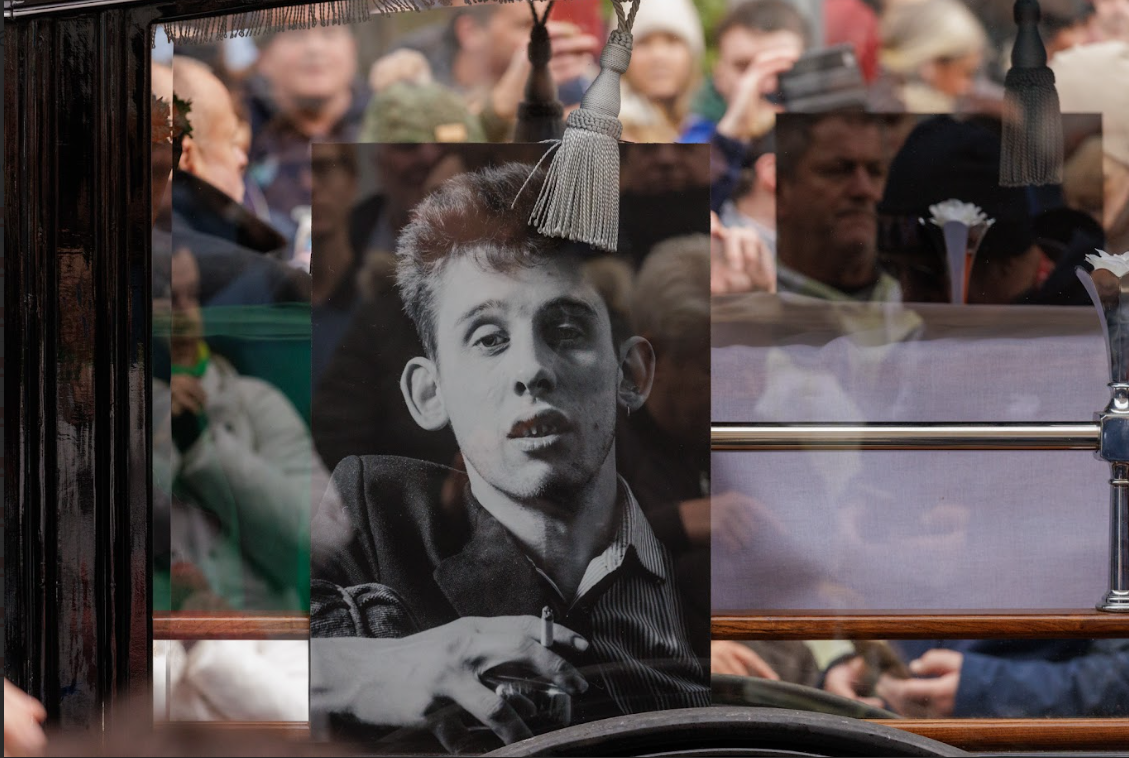- Opinion
- 15 Dec 23
Loss and war in 2023: Hope is hard to find amid the rubble – but we must try

We feel it deep in our hearts, when we lose musicians and artists like Sinead O’Connor, Shane MacGowan, Christy Dignam and Mark Sheehan. The sense of loss is immense. It hits us and then it hits us again. And then we hear and see that unspeakable horrors are being perpetrated by one brutal extremist leader or another. From this vantage point, it looks like hope may have finally died in 2023...
I know you’ve heard this one before – but that truly was a diabolical fucking year.
On the world stage, there was hope at the start of 2023 that, come spring, Ukraine would begin a counter-offensive, with the aim of driving Russia back across the territory it had taken during its original march to Kyiv. Successes might be small at first – but if the Ukrainian army could build momentum, then anything was possible. An end to a despicably unnecessary, thoroughly pointless and horribly costly war might just be on the horizon.
There was hope too that, in the United States, the mounting litany of legal cases against Donald Trump would begin to turn the tide, within the Republican Party, against him – and that a return to the less polarised politics of the past might just become possible.
Put Donald Trump out of business and we’d likely also see a fresh push by the Biden administration to meet climate goals in America. This, in turn, would – we assumed – put pressure on other major nations to follow suit. We live in hope. Or at least, we did.
Here in Ireland, the dream was that we’d finally begin to tackle the housing crisis, and homelessness. We’d bring down the criminal cost of housing and rent. And in that way, we’d begin to address the creeping sense of disenfranchisement and alienation that had been gaining a deep foothold.
Those were just some of the big ticket items.
We all wanted Ireland’s musicians, writers and artists to flourish on the international stage.
We also wanted Stephen Kenny’s Ireland to turn things around and to qualify for the upcoming Euro 2024 tournament; Rhasidat Adeleke to come back with a medal from the World Athletic Championships in Budapest, in August; and fans of the oval ball wanted Ireland to go all the way in the Rugby World Cup in September. All the portents were good. If ever Ireland were going to win it, this had to be the year…
If only.
EVERY DAY A NEW HORROR
Everything is relative. Watching a football tournament or an athletics championship amid the unmitigated disasters that have been crashing down on people in different parts of the world these past twelve months, it becomes irrefutable that sport really is little more than a distraction. Entertaining, of course, and often inspiring – a beautiful distraction at its best – but when it occurs alongside some fresh horror being visited on innocent people by an amoral, vengeful autocrat or a dictator who believes he has money to burn, then it becomes impossible to dispute that it is no more than a side-show.
Which is why it became deeply dispiriting to read fresh news every morning of the enormity of the brutality, the egomania, the immorality, the vindictiveness, the vast destructiveness and the colossal waste of precious resources of which Vladimir Putin has personally been guilty on a daily basis in pursuing his attempt to subjugate Ukraine.
How much has the invasion of Ukraine by Russia cost? The US alone has contributed in the region of $50 billion to the Ukraine war effort. $200 billion has to be a vast underestimation. And that figure doesn’t include the money that will be required to rebuild towns and villages that have been bombed back to the Stone Age by the Russians.
You thought that was bad – and it was. But then came an eruption in Gaza.
A new round of large-scale Middle East violence started with the vicious and murderous attack mounted in Israel on 7 October, by Hamas, in which 1,200 Israelis – mostly ordinary citizens – were butchered mercilessly, and 240 hostages were snatched. That attack was a depraved descent into barbarism: horrific, bloody and utterly indefensible.
Agonisingly, what the Israeli government under Benjamin Netanyahu, and the Israeli army, have done in response puts that into the quarter-cent place.
– They have knowingly butchered approximately 18,000 people. The majority are women and children.
– They have wiped out entire families from the smallest children up to great grand-parents
– They have deliberately set out to destroy the infrastructure of the Gaza strip, bombarding hospitals, schools and houses into rubble.
– They have targeted the communications infrastructure and denied independent journalists access.
– They have uprooted 1.8million people and left them without water, food, medical supplies and shelter.
– At 59, in less than 10 weeks, they have killed more journalists faster than have perished in any conflict in 30 years (Hamas killed four Israeli journalists on 7 October).
– They have also butchered the families of many journalists, including Wael al-Dahdouh, Ala Atallah and Moamen Al Sharafi , killing 4, 9 and 22 family members respectively.
– At over 100, they have slaughtered more United Nations aid workers than have been killed in any other war since UNRWA was founded.
– They have made it impossible for the approximately 50,000 injured to be treated properly, ensuring that many will never recover.
– They have rounded up male civilians, including, on occasion, journalists and forced them to strip to their underpants in the street, in an act of public humiliation of innocent people.
– Meanwhile, so far in 2023, in the West Bank, 483 Palestinians have been killed and 12,769 injured by Israeli forces, and the land thieves they support and shield.
I could go on. Every day a new horror is revealed.
Good Jewish people, who are protesting all over the world, are being silenced.
The net effect is that Joe Biden and his administration – who have blithely supported the brutal Israeli military campaign with vast donations of arms – have blood not just on their hands but clogging every pore on their bodies. The word genocide is being widely used. Yesterday, the United Nations voted overwhelmingly to demand a ceasefire. The US was one of just ten countries that voted against. How can they now, with the slightest credibility, attempt to hold Russia to account for its war crimes in Ukraine? They can’t.
The whole world feels like a busted flush. And it is hard to see any possible way back to idealism.
INSPIRING AND SAD
I didn’t want to have to write about any of that shit. I wanted to think here about friends and fallen heroes. I wanted to think about the great Irish musicians we lost during the past 12 months.
I wanted to remember the first time we wrote about Meelah XVIII in Hot Press. The word that started to come back about the young fella up front. About the first stirrings of Aslan when 1982 turned into 1983. About the lead singer who was definitely going to break a few hearts. About how we looked in awe at the pictures of an Irish band trying to get in on the New Romantic look that was fashionable then. And failing spectacularly. Irish bands tended to be butch: they were all about meat and potatoes.
That failure brought out the cynics in some but it made me feel an affection that I would never shake off. I remember how George Byrne, long since departed too, seemed smitten. That was not the wrong word. He advocated for Aslan almost as strongly as Bill Graham had for U2.
I wanted to look back at their rise, their stumbles, their rebounds, the further struggles that plagued them. They won the Philip Lynott New Band Award at the Hot Press Awards in 1986. That year, they released ‘This Is’ as their debut single. It’s a track that’s still played on radio and resonates powerfully.
Then, in 1987, they did the deal with EMI Records that got them properly out of the starting blocks with their debut album Feel No Shame – good title – finally released in 1988. It went to No.1 in Ireland. They were working class heroes. They stayed close to their roots in the Finglas and Ballymun area.

Too close in some respects, with heroin rampant in that area of North Dublin. I remember meeting the band’s manager Oliver Walsh and Christy Dignam, as the tabloids circled. The Irish Star – a different newspaper then – was about to break the story about Christy’s heroin addiction and his split with Aslan. A different kind of nightmare ensued. Christy hit rock bottom. He was in a life or death battle.
It was 1993 when the band got back together. No one would say it was plain sailing afterwards, but Christy finally – it took a long time – got clean. The rest of the story is both inspiring and sad. But what we can say for sure is that the legend grew. Aslan – with Christy Dignam out front – were more popular than ever in the final years of their lives. Christy battled with cancer, and the flame burned for far longer than might have been anticipated. This year we said our last sayonaras. “All I have is everything to me,” the song goes, “But everything could change real soon.” And it did. Goodbye Christy Dignam.
A working class hero? I thought too of Mark Sheehan of The Script. How he went from his base in The Liberties and took on the world, alongside another local boy Danny O’Donoghue, and Glen Power. Theirs was a whole other saga of ambition, of bravery, of succcess – and of sheer, desperate misfortune. They lost – we lost – Mark in 2023. “You can throw your hands up,” the band sang on their biggest hit, featuring will.i.am, “you can beat the clock/ You can move a mountain, you can break rocks/ Some will call it practice, some will call it luck/ But either way, you’re going to the history books... Standing in the hall of fame.”
The sadness is inescapable.
WE LOVED HER
I wanted to share an atheist’s prayer for the loss of Sinéad O’Connor. The first time we ever saw that cheeky smile, in a picture by Colm Henry, taken of her when she was working as a Kissagram girl. It had nothing to do with music, but she looked like one of us already, and of course she was.
Those first, wonderfully hopeful days, when she was just marvellous raw talent, beginning to find her voice. The singularity with which she went about the business of being herself. Sinead O’Connor: musician, artist, producer, songwriter and vocalist extraordinaire. The birth of her son Jake. The Lion and the Cobra. Those first hits. Hints of complications and conundrums being played out. And then, ‘Nothing Compares 2U’, the first single off I Do Not Want What I Have Not Got. Wild success. The era of the two Ciaras, Cronin and Flanagan. Different battle lines drawing themselves. Sinead, in the eye of the storm, more vulnerable than ever.

Sinead O'Connor. Credit: Kate Garner
Refusing to take the easier road. Tearing up the picture of the Pope on Saturday Night Live. Being lit on, hit on, attacked and abused. Booed off stage at a Bob Dylan tribute gig. Alarm bells ringing. A vulnerable warrior who insisted on never dodging the fight. Who became a hero and an icon, especially for women, across the world. And more especially again for Irish women.
Child sex abuse. Incarceration of women in mother and baby homes. An insidious insistence on controlling women’s fertility. The horror shows of the abortion referendums. The right to express yourself sexually. Sinéad O’Connor refused to back down or play it softly-softly on the issues that mattered. She cried a lot. And wondered where it was all going; what it was all about. She found it increasingly difficult to cope.
She was the best known woman ever to come out of Ireland. She loved the place and loathed so many aspects of it. It was claustrophobic. But loneliness was easier to keep at bay here. Sinead struggled with contradictory impulses and feelings all her life. She found life itself hard. And then harder.
Through it all, she sang. So many brilliant and moving performances. So many tracks and songs to treasure. The beauty of it was that she could put her hand to almost any style – and she did. And whatever she sang, she brought the whole of herself to. Nothing was done by halves. Ever.
We loved her and worried about her and applauded her when she released some new musical diamond.
I wanted to remember all of this and to try again to find the words that would honour this towering Irish artist sufficiently now that she has departed from this vale of tears. And that might also express our collective thanks, and our personal gratitude, for everything that she did and achieved in her art and her life, the terrible burden of her increasingly difficult battle with mental health issues notwithstanding.
We loved her. Ireland loved her. Musicians loved her. Fellow artists loved her, Friends and fans all over the word loved her. Her family loved her. And still, at the end of a long and bitter year, we are left to wonder if Sinéad ever truly knew how much she was loved. And as the ancient ritual of song to mark the end of the year looms, we have to admit that we will never really know if it ever dawned on her fully.
FUNERAL OF A CHIEFTAIN
And I had wanted to talk about Shane MacGowan. In our special Hot Press tribute issue to Sinéad O’Connor, there was one short contribution by which we were particularly moved – and of which we were especially proud.
“Sinéad saved my life,” Shane MacGowan said, a reference to the fact that Sinead had called the police to report Shane’s use of heroin. “She was always a great friend to me and Victoria and she always looked after me when I needed her…
“I had never seen anything like her when she first went on the telly doing ‘Mandinka’,” Shane added. “She was really powerful in her bovver boots, with her skinhead and her ballet tutu. I was blown away by her.”
The piece ended with a lovely dedication. “I just pray,” Shane said, “that she is at peace and that she is with her son Shane, who was also a really good kid.”
And now, just a few months on, we are mourning the loss of Shane himself – one of the great, genius songwriters of Irish music.

Shane MacGowan. Credit: James Higgins
The past couple of weeks have been an intense burn. And a blur. We were working on a seasonal pop-up exhibition about The Pogues and Shane MacGowan for EPIC The Irish Emigration Museum – to which we’d given the title They Gave The Walls A Talking – and on a companion issue of Hot Press. Talking to Victoria. To Shane’s sister Siobhan. To people on The Pogues inner circle. Building something we hoped would be unique and special.
The issue had just gone to press, with contributions from Siobhan MacGowan, Jem Finer, Nick Cave, Steve Lillywhite, Bob Geldof, Damien Dempsey and loads more, when the terribly sad news came through that Shane had died. We looked back at all the Hot Press covers on which Shane featured. Found the interview with Liam Fay in which he sang the praises of Hot Press. Laughed at the pix from the cover shoot for our 30th Anniversary issue, in which Sinéad used a couple of balloons for that Dolly Parton effect and Shane hung over her shoulder like an uncle. He smiled a lot that day.
We reeled back through the songs. Recalled the wild gigs. Felt the emotions run high. Another hero gone for good, leaving us with the gift of his music. And then the final goodbye.
The church in Nenagh was rammed with bodies. They would have been hanging from the ceilings if those vaults weren’t so high. Eventually, the place was cleared so that the coffin could be carried up the aisle. When it appeared, it was draped in an Irish flag. That and the music, and the presence of the President of Ireland Michael D. Higgins, made it feel like the burial of a great Irish chieftain.
Which in a way it was.
There was music of a different order: beautiful playing from John Sheahan and Colm Mac an Iomaire, among others, and marvellously atmospheric singing from Cór Cúil Aodha; Camille O’Sullivan and Mundy, brilliant on ‘Haunted’; Imelda May and Declan O’Rourke – with the musical magician Liam Ó Maonlai on whistle – drawing tears with ‘You’re The One’; Cáit O’Riordah standing tall to sing ‘I’m A Man You Don’t Meet Every Day’; Nick Cave doing a gorgeous, deep voiced ‘Rainy Night In Soho’ that broke hearts even more; Glen Hansard and Lisa O’Neill delivering a blistering ‘Fairytale of New York’, original lyrics fully, unashamedly intact; fine words of remembering, praise and celebration from Siobhan MacGowan; stories, yarns and insights from Shane’s muse and partner-in-life and love, Victoria Mary Clarke; and the great troupe of The Pogues singing the final song of farewell, ‘The Parting Glass’.
The funeral of a chieftain. That’s what I’d like to have written about here and instead it is the bloody images of war upon the people of Gaza that is keeping us awake at night, as the brutal year of 2023 comes to a close, and children die in their thousands. It is the spectre of Donald Trump still in the ascendant. It is the ghoulosh face of Vladimir Putin.
Hope is hard to find amid the rubble, maybe even impossible. But we must try. We must try.

Shane MacGowan's funeral procession. Credit: Anamaria Meiu.
RELATED

- Opinion
- 23 Dec 23
The Superannuated Man - Carty's Musical Memories Of 2023

- Opinion
- 20 Dec 23
Ireland in 2023: "So much was lost, burned, washed away"
RELATED

- Opinion
- 21 Dec 18
David Bowie Feared Being Murdered At Irish Gig!

- Opinion
- 10 Oct 18






